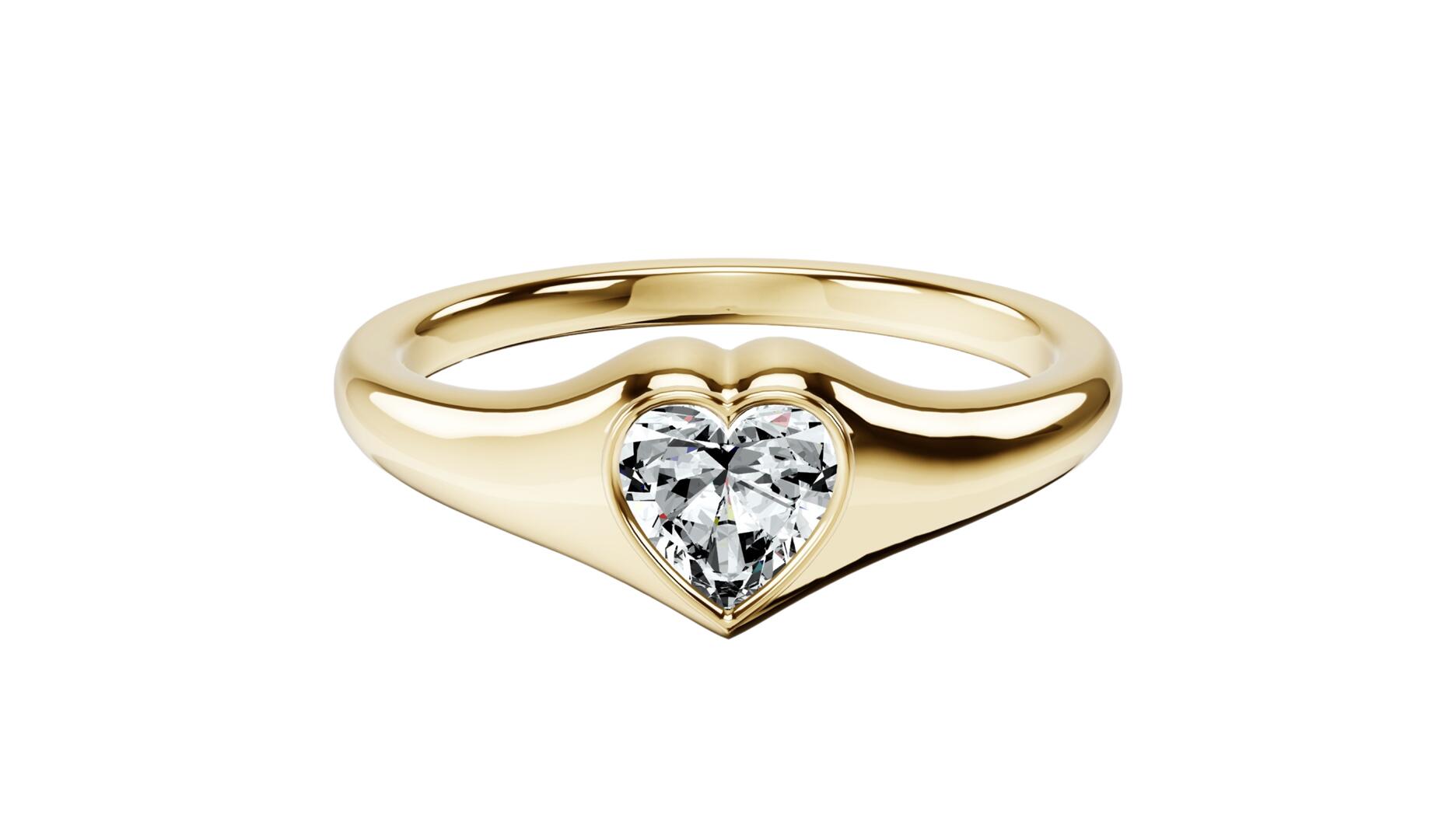Beverly Hills was chosen as the location for the brand’s first store, designed as a “private residence for modern monarchs.”
COVID-19: Consumer Trends and Where They’ll Go from Here
A recent survey by Provoke Insights looks at online shopping vs. off, the in-store experience and consumers’ top concerns about the future.

New York—Consumers have adopted new purchasing patterns in light of the restrictions imposed—and in some cases still in place—across the country.
The question remains, which of these habits will stick even as states reopen, and which won’t?
In its most recent study of 2020 consumer trends, market research firm Provoke Insights aimed to gain a better perspective on consumers’ mindsets and behavior changes pre-, during and post-pandemic.
It conducted a survey among 600 U.S. consumers between the ages of 21 and 65, with sampling based on the latest census data so factors like income, age, gender and geography reflected the country’s population.
The 10-minute survey was fielded between June 5 and 15.
Here’s what it found about how consumers have been shopping since March, and how that could change.
Online Luxury Shopping
Perhaps unsurprisingly, according to survey results, 77 percent of Americans who usually wear jewelry said they haven’t been wearing it as often as they did prior to the start of the pandemic—understandable given the trend of dressing more casually while stay-at-home orders were in place.
As jewelry wearing has declined in frequency, so too has online shopping in the category.
According to Provoke Insights, 22 percent of U.S. shoppers aren’t buying as much jewelry online as they were before the pandemic.
Ten percent said they are buying more jewelry than before.
Among the age groups, Provoke found that millennials are most likely to buy jewelry, watches, handbags and other accessories online right now.
In-Store Luxury Shopping
The study also looked at in-store shopping, which 66 percent of survey-takers said they plan to do when stores reopen.
The question, though, is how often they might do that.
According to the survey, 45 percent of Americans will shop in stores the same amount, while 42 percent are planning to shop at luxury retailers less than before the pandemic and 12 percent said they will shop more.
Members of Generation Z—the generation that follows the millennials—and millennials are more likely to shop in-store once luxury retailers reopen.
RELATED CONTENT: 8 Things to Know About That Next Generation … ZAmong Gen Z, 53 percent said they would shop more or the same amount in luxury retailers, while the remaining 47 percent said they would shop less.
For millennials, 60 percent indicated they’d shop at luxury retailers more or the same amount, with the remaining 40 percent indicating they’d shop there less.
The survey showed there’s an interest in “out-of-the-box” retail ideas to provide new shopping opportunities, especially among younger consumers.
RELATED CONTENT: 7 Tips for Keeping Your Online Business RollingA quarter of luxury shoppers are interested in virtual shopping events—with nearly half of Gen Z and more than a third of millennials indicating they’d be interested—and 27 percent also said they’re interested in scheduling an appointment to be able to shop privately and avoid other customers.
Other Categories
A handful of industries have seen their online sales increase throughout the pandemic.
Makeup, for example, is selling at a higher rate online as consumers go digital to purchase their favorite products, with 34 percent of Americans purchasing makeup or skincare online in the last three months, up from 29 percent before March.
Online grocery sales have risen 20 percent over the last three months.
Personal care items and alcohol also have seen an uptick, while online sales of furniture and kitchen appliances have declined.
Future Concerns
Provoke Insights also asked survey-takers about their concerns and outlooks as states reopen.
People are most concerned about COVID-19’s effect on the economy, with 76 percent of survey-takers indicating this is a worry for them.
Sixty-three percent said they’re concerned about social events, 61 percent about eating at restaurants, 55 percent about shopping in stores, 49 percent about health and 37 percent about the security of their job.
Looking ahead, three out of four U.S. consumers said they expect the country to dip into a recession.
Still, the majority—72 percent—are optimistic about the future for various reasons including family, religion and knowing the virus will eventually subside.
Those who indicated they don’t feel optimistic about the future said they’d be more so if there was a COVID-19 vaccine or a change in political leadership, survey results found.
The Latest

Kering, Apple, and other retailers have reportedly temporarily closed stores in the Middle East region in light of the recent conflicts.

Beth Gerstein discusses the vibe of the new store, what customers want when fine jewelry shopping today, and the details of “Date Night.”

Every jeweler faces the same challenge: helping customers protect what they love. Here’s the solution designed for today’s jewelry business.
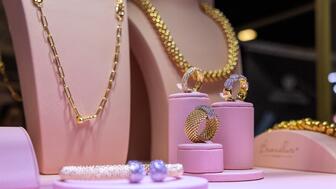
Nearly half of buyers are prioritizing silver and fashion collections this season, organizers said.


The “Live Now. Polish Later.” campaign features equestrians wearing the brand’s jewels while galloping across the icy plains of Kazakhstan.

The precious metals provider has promoted Jennifer Ashworth to the role.

With refreshed branding, a new website, updated courses, and a pathway for growth, DCA is dedicated to supporting retail staff development.
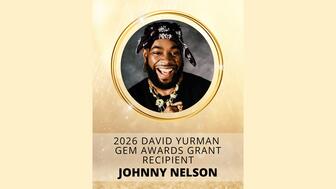
Nelson will be honored as the inaugural grant winner at the Gem Awards gala on March 13.
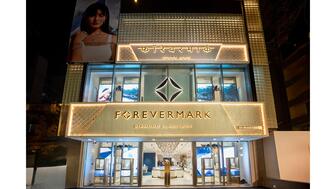
Experts from India weigh in the politics, policies, and market dynamics for diamantaires to monitor in 2026 and beyond.

The American precious metals refiner’s day-to-day operations remain the same post-acquisition.
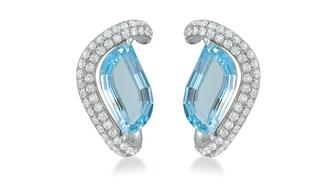
These aquamarine jewels channel the calming energy of the March birthstone.
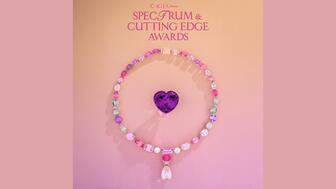
The “Innovative Design” category and award will debut in the Spectrum division of this year’s AGTA Spectrum & Cutting Edge Awards.

Diamond jewelry was the star of the event formerly known as the SAG Awards.

Foerster is this year’s Stanley Schechter Award recipient.

Sponsorships and tickets to the annual fundraising event, set for May 31, are available now.

Chicago police and members of the U.S. Marshals Service tracked down the 35-year-old suspect earlier this week in St. Louis.

Owners of the Ekapa Mine reportedly filed for liquidation about a week after a mudslide trapped five workers who have yet to be found.
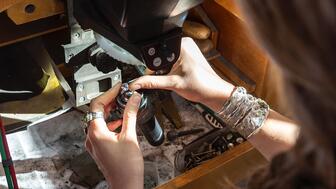
A 10-year alliance has also begun to address the shortage of bench jewelers through scholarships, enhanced programs, and updated equipment.
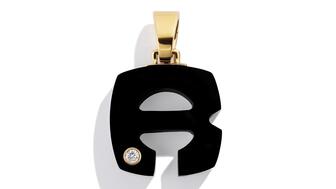
The “Splendente” collection has evolved to feature hardstone letter pendants, including our Piece of the Week, the onyx “R.”
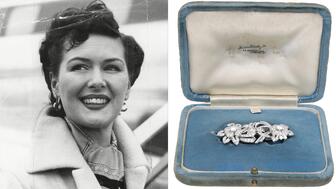
The jewelry collection belonged to “one of society's most glamorous and beautiful women of the mid-20th century,” said the auction house.

The update came as Anglo took its third write-down on the diamond miner and marketer, which lost more than $500 million in 2025.

Emmanuel Raheb discusses the rise of “GEO” and the importance of having well-written, quality content on your website.

Each received around four years for burglarizing a jewelry store and a coffee shop in Simi Valley, California, last May.

Catherine Aulick, a GIA graduate, received the ninth and final Gianmaria Buccellati Foundation Award for Excellence in Jewelry Design.
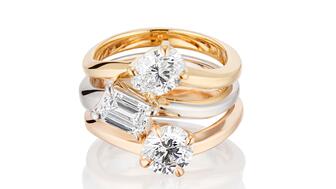
We asked a jewelry historian, designer, bridal director, and wedding expert what’s trending in engagement rings. Here’s what they said.

Are arm bands poised to make a comeback? Has red-carpet jewelry become boring? Find out on the second episode of the “My Next Question” podcast.













